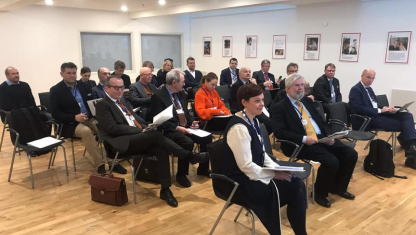Planned format and organizers:
- St. Petersburg State University of Economics (UNECON) together with Norwegian University of Science and Technology invites for an academic workshop on research in decarbonization and the potential for cooperation.
- The workshop will address ongoing experience and research linked to decarbonisation in Baltic Sea and Nordic countries.
- The workshop is open to public participation (subject to registration and 30 available seats).
Background:
The Paris Agreement foresees to keep the raise of global temperature well below 2 Celsius, if possible below 1.5°Celsius. The IPCC special report on global warming of 1.5 ° C published in October 2018, concludes, that to avoid serious negative climate effects global warming should not exceed 1.5 °C. The EU Commission has consequently published a vision of “a clean planet for all” which aims at net zero GHG emissions by EU by 2050 for discussion and inclusion in its strategy.
While it is clear that renewables — mainly wind-power and PV – will play a major role as a cost effective way to produce carbon free electricity, also substantial volumes of decarbonized gas in the form of hydrogen needs to be included to meet this ambitious target. While electric renewables are well developed, research on carbon free production of hydrogen, its transport, distribution and application is now taking off on a broad scale. Nordic and Baltic countries have a broad experience and are engaged in ongoing research on the handling of hydrogen. Norway and Russia as large gas exporters are engaged in promoting different ways to decarbonize gas to produce hydrogen (Norway with focus on steam methane reforming with Carbon sequestration and Russia by pyrolysis of methane with use or disposal of Carbon) as an essential contribution to deep de- carbonization. The purpose of the seminar is to provide insight into decarbonization activities and look for potential cooperation of Nordic and Baltic countries.

